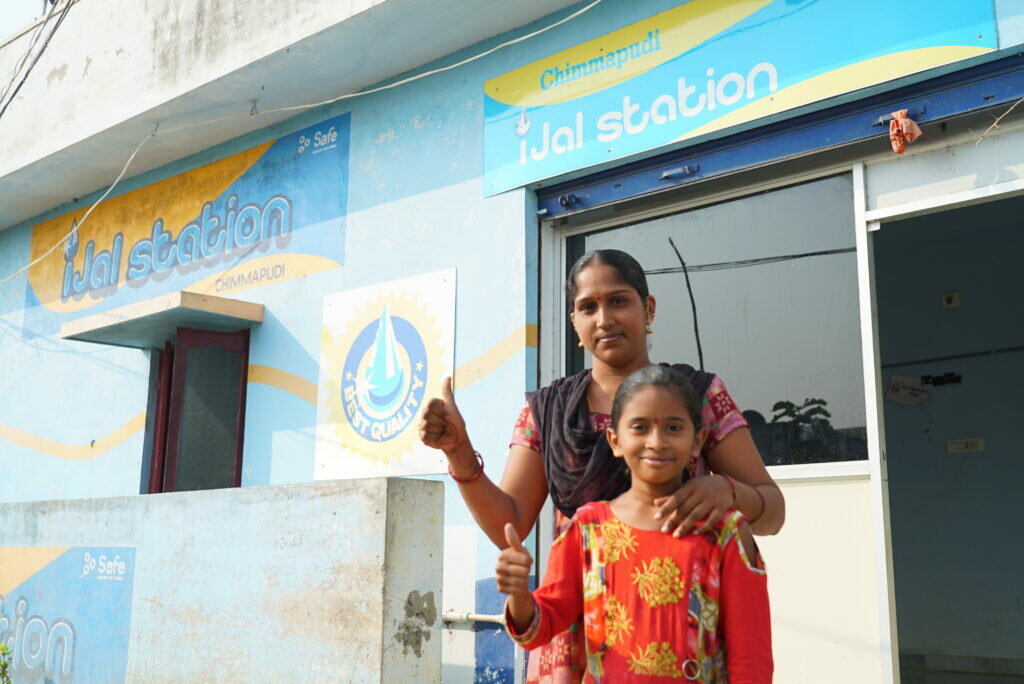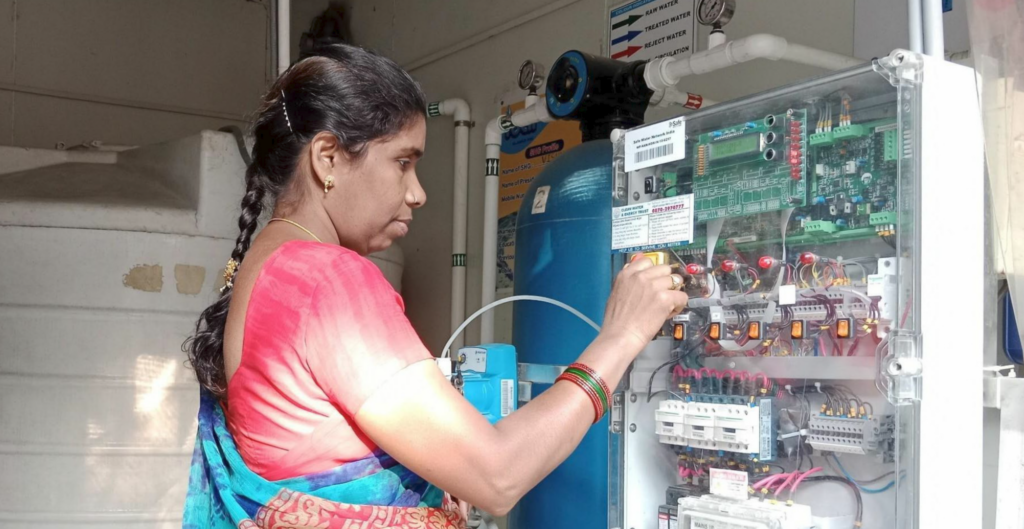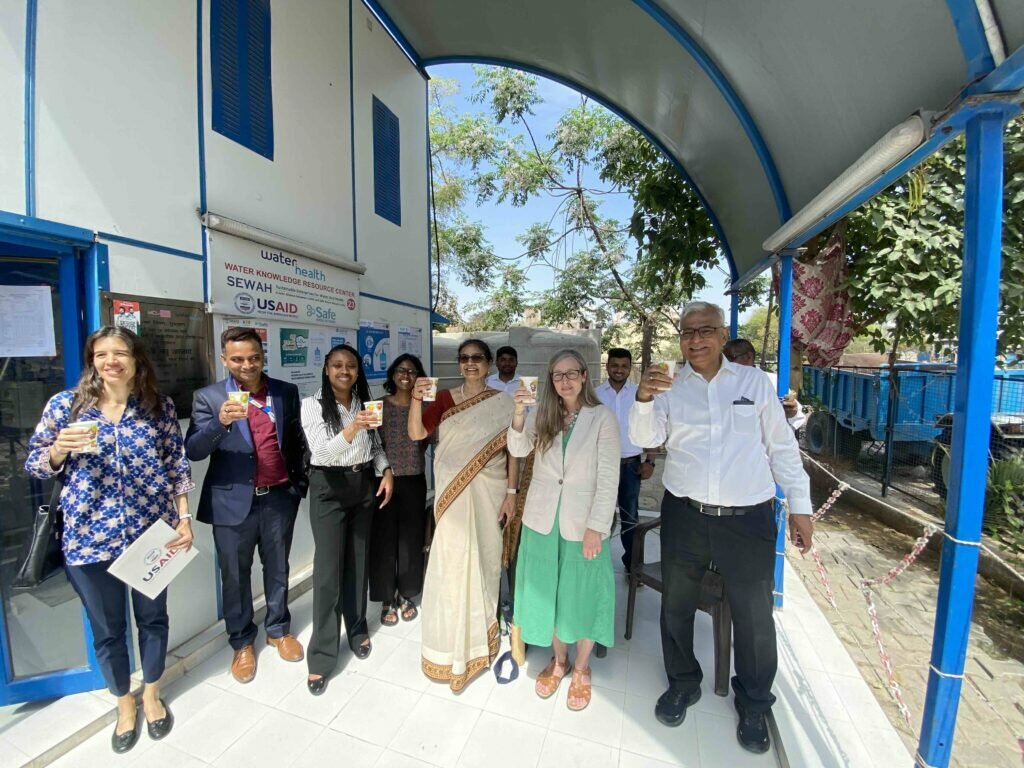SECTOR ENGAGEMENT & POLICY ADVOCACY: EMPOWERING WOMEN
Safe Water Network has a variety of programs to empower women, recognizing that in many underserved populations, women play a vital role in achieving change in a community. Some of this work takes place within the Safe Water Enterprise Alliance (SEWAH), a national platform of 45 safe water enterprise implementers that USAID and Safe Water Network helped form in 2019.
By the Numbers
60
Knowledge Centers Established.
548
Number of Female Water Entrepreneurs Trained.
The SEWAH alliance’s Water Aunties program empowers women as social entrepreneurs in the water sector. By transforming women from water carriers to Water ATM entrepreneurs, the program challenges gender roles and creates sustainable livelihoods. Currently, 548 women operate Water ATMs across 23 cities in 11 states, providing affordable safe drinking water to their communities.

The program also includes innovative features like IoT-enabled Water ATMs, which enhance operational efficiency and reduce the need for constant station management. Water Aunties have demonstrated stronger financial discipline, better volume growth, and superior ATM maintenance compared to their male counterparts, further solidifying their role in the water sector.

USAID-SEWAH: ACHIEVING IMPACT THROUGH COLLABORATION 2020-2023
SEWAH (Sustainable Enterprises for Water and Health) was a three-year engagement under a USAID grant aimed at scaling up safe water enterprises across the country through convergence, policy advisory, and knowledge sharing. Concluding in June 2023, the program successfully expanded and sustained safe water enterprises and established the digital platform swealliance.org, which continues to serve as an active resource. The safe water enterprise model is now scale-ready for global expansion to South Asia, Southeast Asia, Africa, and Latin America.

Through this effort we also established 60 Water Knowledge Resource Centers across 30 cities and 12 states in India, providing safe drinking water to over 212,000 people. We also introduced several innovations to reduce direct contact among consumers, operators, and technicians—especially critical during the pandemic. These included updated protocols, comprehensive training, and essential toolkits to maintain safety and service continuity. Many of these protocols continue today. The programs was also featured on USAID’s GlobalWaters website.
USAID General Development Office visits the Safe Water Network Knowledge Resource Center in Gurugram.
FOR FURTHER READING:
Rethinking Gender Equality Through the Lens of Economic Empowerment in Water
This 2023 report shares the success of the shift in women’s traditional roles, from carrying water on their heads to owning and operating local water stations. Women are becoming the leaders of change in communities by providing safe water, WASH education, and promoting environmental sustainability. Download the report.
